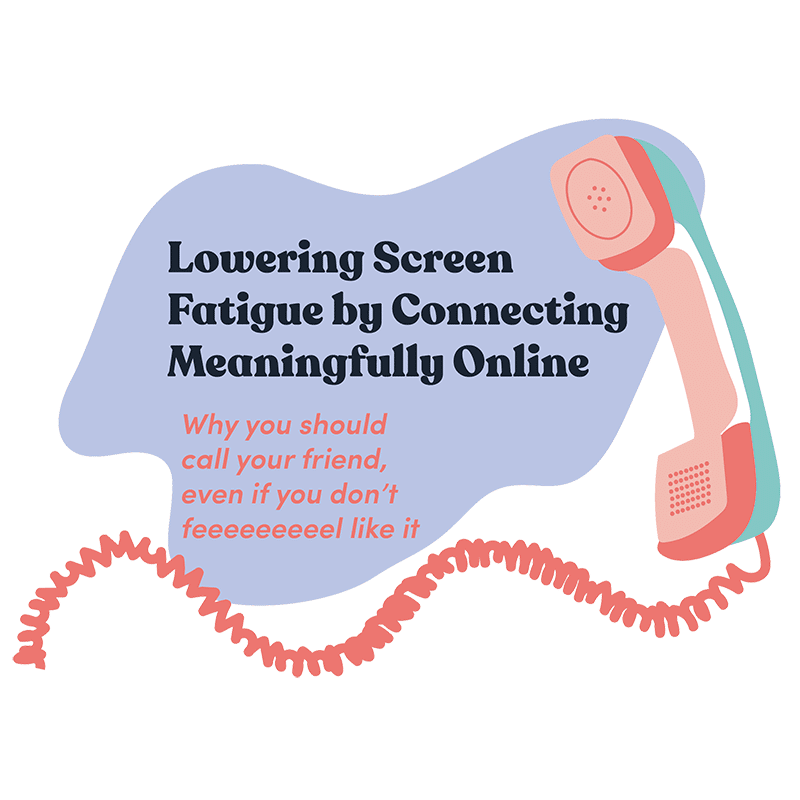Lowering Screen Fatigue by Connecting Meaningfully Online

Imagine after your usual checkup, the doctor comes back in and, to your surprise, her prescription is, “Take three Zooms and call me in the morning.”

You’re taken aback.
“Just make sure these calls last longer than 10 minutes,” she adds. “And share vulnerably!”
What if this was the world we lived in? Would your insurance cover a vacation with your friends? Would government policy dare to take on our loneliness epidemic?
Considering how flooded we are with video meetings, being told it’s healthy to spend more time on Zoom to call a friend is a hard capsule to swallow.
But what if turning off Netflix to make that call is a literal lifeline into better health?

This may actually be so much the case that psychologists are urging policymakers to consider strong relationships a public health priority.
There is an undeniable link between the quality and quantity of our relationships and mortality, according to Dr. Julianne Holt-Lunstad of Brigham Young University, who is behind the study “Social Relationships and Mortality Risk.”
After Holt-Lunstad and colleagues reviewed results from 148 other studies — which involved data from a total of 308,849 participants — she found that our social relationships increase likelihood of survival by 50%.
In fact, our relationships influence risk of death just like other well-established risk factors including smoking and alcohol consumption. And even more surprising, this conclusion remained “consistent across age, sex, initial health status, cause of death, and follow-up period.”

Plus, while many think of physical inactivity and obesity as well-accepted risk factors, the impact of social relationships on mortality exceeds these traits.
If this evidence isn’t convincing enough, here are three ideas that will compel you to stay connected:
- For those of you familiar with the idea of Blue Zones, or regions of the world in which people live longer on average, this connection between social connection and livelihood follows suit. Maintaining social bonds is one practice identified as an important factor in determining longevity.
- The authors of “Social Relationships and Mortality Risk” note that the quality and quantity of social relationships tends to be decreasing in industrialized societies. One statistic shows that in the past 20 years there has been a three-fold increase in the number of Americans who report having nobody to confide in.
- A third 2018 study, based on responses to the UCLA Loneliness Scale, found that almost half of Americans reported that they sometimes or always feel alone or left out, with Generation Z reporting to be the loneliest and in worse health compared to other generations, showing that this is a growing challenge that deserves our attention.

So what now?
Holt-Lunstad advocates for experts to create formal guidelines for social activity to be designated by the government and public health organizations — comparable to the ones we currently have for nutrition and exercise.
For example, instead of kids receiving a healthy eating nutrition diagram, they would leave the doctor’s office with an infographic showing them how frequently they should connect with friends and family.

(This is an exercise we do while sharing the virtual empathy training experience that really builds presence for the participants.)
Personally, social isolation during quarantine has been no walk in the park, but even though connections have taken a technological form for the time being, that doesn’t mean our relationships have to be put on hold.
So instead of putting off calling that one friend one more day, consider answering the question above, make your call, and feel better knowing that your immune system is thanking you!
P.S. If you’re wondering how to create a space where you can embody personal virtual connection, ask us about sharing Empathable with your team.

